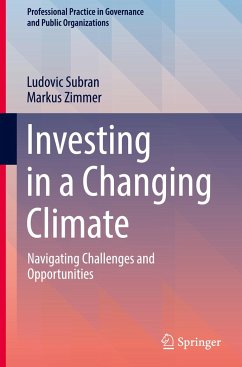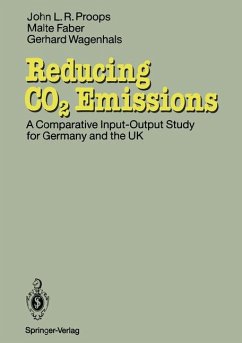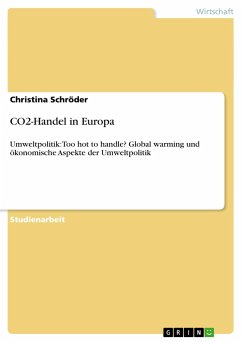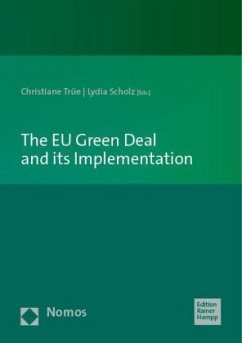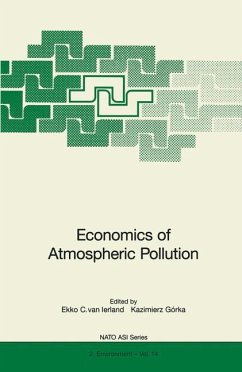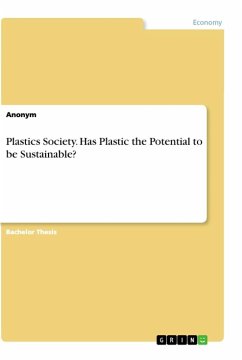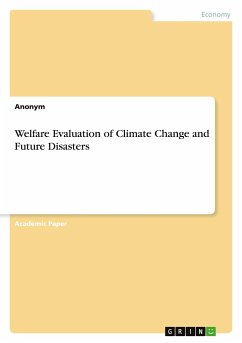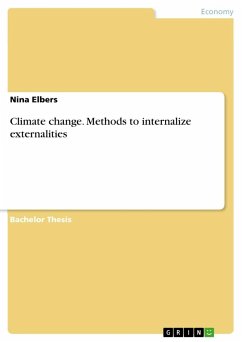
Climate change. Methods to internalize externalities

PAYBACK Punkte
0 °P sammeln!
Bachelor Thesis from the year 2021 in the subject Economy - Environment economics, grade: 1,5, University of Applied Sciences Dortmund, language: English, abstract: The dissertation is motivated to identify possible reasons for insufficient efforts to mitigate climate change. In addition, economic instruments to address the global problem are examined to find the most cost-effective and efficient solution. This thesis also aims to determine and address arising challenges related to the global implementation of climate policies. Based on empirical research, the main barriers to mitigation effor...
Bachelor Thesis from the year 2021 in the subject Economy - Environment economics, grade: 1,5, University of Applied Sciences Dortmund, language: English, abstract: The dissertation is motivated to identify possible reasons for insufficient efforts to mitigate climate change. In addition, economic instruments to address the global problem are examined to find the most cost-effective and efficient solution. This thesis also aims to determine and address arising challenges related to the global implementation of climate policies. Based on empirical research, the main barriers to mitigation efforts include intangible results of the measures combined with high costs of affected sectors and potential benefits from free riders. Anthropocene - this is what many scientists call the new geological era which has already begun. The name is derived from anthropogenic, which describes that something was created by the impact of humans. Precisely, this is what scientists want to portray, as there is ample empirical evidence that the earth is affected by human activities. In fact, previous research has documented that there is a strong rise in the global carbon dioxide concentration since the mid-20th century. In recent years, several publications appeared documenting that many anthropogenic activities are altering climate. Hsiang and Kopp define climate "as the joint probability distribution describing the state of the atmosphere, ocean, and freshwater systems (including ice)". Although this is a simplification, it includes key factors related to the change of climate like modifications in temperature, humidity, precipitation, sea level and extreme weather events like storms.




